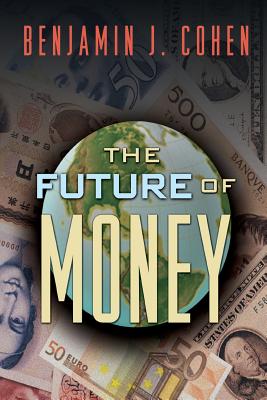

 Princeton University Press
Princeton University Press
The Future of Money


Key Metrics
- Benjamin J Cohen
- Princeton University Press
- Paperback
- 9780691116662
- 8.92 X 6.06 X 0.78 inches
- 0.92 pounds
- Business & Economics > Finance - General
- English
 Secure Transaction
Secure TransactionBook Description
Is globalization leading us toward a world of fewer and fewer currencies and, consequently, simplified monetary management? Many specialists believe this is the case, as the territorial monopolies national governments have long claimed over money appears to be eroding. In The Future of Money, Benjamin Cohen argues that this view--which he calls the Contraction Contention--is wrong. Rigorously argued, written with extraordinary clarity, and thoroughly up-to-date, this book demonstrates that the global population of currencies is set to expand greatly, not contract, making monetary governance more difficult, not less.
At the book's core is an innovative theoretical model for understanding the strategic preferences of states in monetary management. Should governments defend their traditional monetary sovereignty, or should they seek some kind of regional consolidation of currencies? The model offers two broad advances. First, whereas most scholarly work evaluates strategic options individually or in comparison to just one other alternative, this model emphasizes the three-dimensional nature of the decisions involved. Second, the model emphasizes degrees of currency regionalization as a central determinant of state preferences. Cohen also systematically explores the role of the private sector as an alternative source of money.
The book concludes with two key policy proposals. First, fiscal policy should be resurrected as a tool of macroeconomic management, to offset the present-day erosion in the effectiveness of monetary policy. Second, the International Monetary Fund should more actively help coordinate the decentralized strategic decision-making of governments. The future of money will be perilous. But, by mapping out the alternative policies countries can follow, The Future of Money shows it need not be chaotic.
Author Bio
Professor Cohen, a specialist in international political economy, joined the department in 1991. He previously taught at Princeton University from 1964-1971 and at the Fletcher School of Law and Diplomacy at Tufts University from 1971-1991. He retired from UCSB in 2021.
His publications have addressed issues of international monetary relations, U.S. foreign economic policy, currency integration, sovereign debt, theories of economic imperialism, and the history of the discipline of international political economy. He is the author of sixteen books. His newest book, Currency Statecraft: Monetary Rivalry and Geopolitical Ambition, was published by the University of Chicago Press in 2019.
Research Interests
- International Relations, International Political Economy
- Ph.D., Columbia University, 1963
- Louis G. Lancaster Professor of International Political Economy (1991-2021)
Source: UC Santa Barbara Department of Political Science
Videos
No Videos
Community reviews
Write a ReviewNo Community reviews